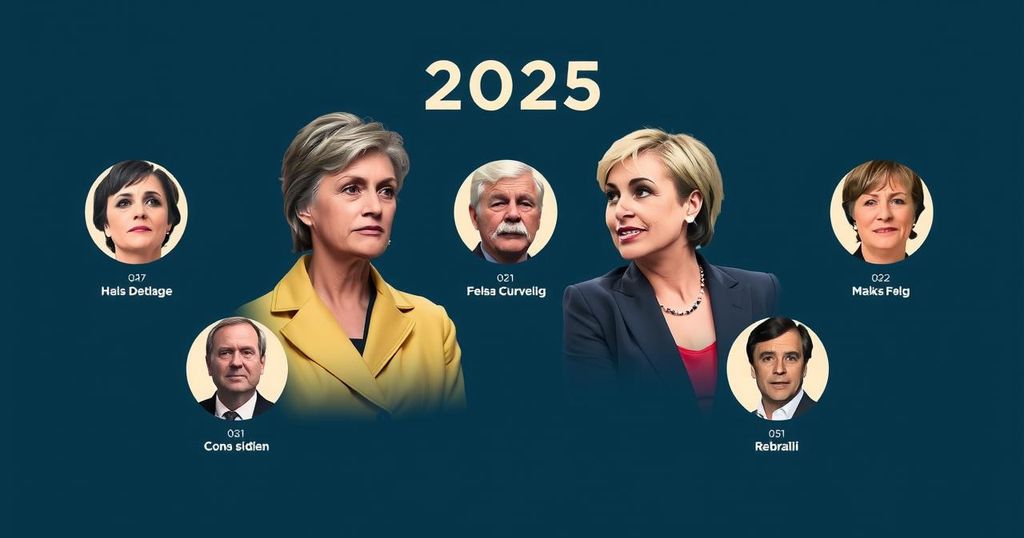Candidates for Germany’s Chancellor in the 2025 Elections

In preparation for the February 2025 elections, various candidates have emerged to represent significant German political parties. Olaf Scholz, Friedrich Merz, Robert Habeck, Alice Weidel, Christian Lindner, Sahra Wagenknecht, and Jan van Aken each bring unique backgrounds and platform policies, setting the stage for a competitive electoral landscape.
In anticipation of the snap elections scheduled for February 23, 2025, Germany’s political scene is shaping up with significant candidates from various parties. Olaf Scholz of the Social Democratic Party is seeking re-election, facing criticism for his bureaucratic image despite his long-standing political experience. Friedrich Merz represents the Christian Democratic Union as its eldest candidate in decades, relying on his legal and business backgrounds.
The Greens party has put forward Robert Habeck, whose relatable persona and straightforward communication style have earned him respect. Alice Weidel from the far-right Alternative for Germany is known for her controversial rhetoric and economic perspective. Meanwhile, Christian Lindner leads the Free Democrats with a prominent social media presence and a reputation for style.
From the Left Party, Sahra Wagenknecht exhibits populist tendencies, focusing on social conservatism and leftist economic policies. Jan van Aken, a former lawmaker, seeks to revitalize the Left Party amidst electoral challenges. The varying backgrounds and approaches of these candidates highlight the diverse political landscape shaping Germany’s forthcoming elections.
Germany’s upcoming 2025 elections will be pivotal as the nation grapples with pressing issues and varying political philosophies. The sudden call for snap elections has prompted parties to select their most prominent figures to lead their campaigns. Each candidate brings unique experiences and perspectives, reflecting the broader ideological divides within German politics. Understanding their political backgrounds and electoral strategies is crucial for evaluating their potential impact on Germany’s future governance.
The candidates for Germany’s 2025 chancellorship present a diverse array of ideologies and strategies. From Olaf Scholz’s pragmatic governance to Friedrich Merz’s conservative footing, and the more progressive stances of candidates like Robert Habeck, the elections promise a robust contest. Moreover, the provocative rhetoric of candidates such as Alice Weidel and populist appeal of Sahra Wagenknecht will undoubtedly shape voter sentiments. These factors collectively underline the critical dynamics at play in shaping Germany’s political landscape.
Original Source: www.dw.com






